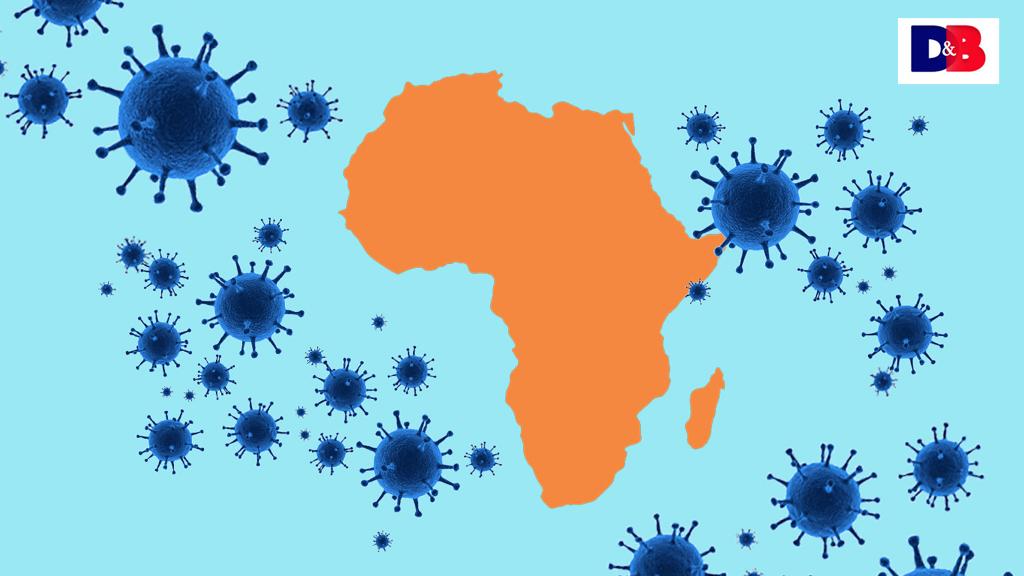While the world fights one of its deadliest pandemic in history, struggling to flatten the curve, the Coronavirus is sweeping across Africa at a breakneck speed. The initial response of the continent to the Covid-19 outbreak was seen as a remarkable case of the infection being successfully contained. But now the scenario is changing and African countries are witnessing an escalation in the number of reported cases and death toll is also steadily rising in varying degrees, across the continent.
According to the World Health Organisation (WHO), Africa has been recording new cases on the daily and the pandemic seems to be soon engulfing the countries that had earlier responded rather impressively to the outbreak in the beginning. If viewed in comparison to the global health situation, Africa still has the minimal number of recorde overall cases in the world. But what rings in concern and fear are the rapidly increasing cases that have been reported in various parts of the continent.
Matshidiso Moeti, Africa’s regional director in the WHO said that the virus has traveled beyond the capital cities and owing to the low testing, the institutional response is being hampered. Even though the governments are catering to severe cases swiftly, and Africa still remains the least hit continent by the pandemic; the rising graphs of infections and deaths suggest that it is not late before Africa also follows suit to the current world situation. This alarm rings clearly in the statistics that show that while it had taken 98 days for Africa to reach a mark of 100,000 recorded cases, it took only 18 days to double this number and over the next 20 days it reached the 400,000 mark. Community transmission has set foot in most parts of African countries and slowly the rising trends of the infection spread are mirroring the badly affected parts in the rest of the world.
Moeti, at a headquarter briefing in the WHO, said that Eastern and Western Cape provinces had been seeing high numbers of positive cases and death, making Western Cape trends appear similar to contemporary outbreaks in Europe and the US. The fear is that despite having one of the most advanced healthcare systems in Africa, the rising numbers put Western Cape at great risk of an overwhelming situation in the near future. Furthermore, South Africa and Egypt are the two African countries with the highest number of recorded cases, accounting for more that 60% 0f total new cases reported from Africa in late June. While South Africa has the maximum number of positive cases, Egypt has the highest recorded deaths due to the infection. The South African government had received praises for its strictest lockdown in the very initial stages, but as the daily business of the country is returning to its usual form after the easing of the lockdown, a steep rise in the infections has been witnessed. Nigeria recorded the second highest death rate in Africa.
The healthcare experts are worried that enough tests are not being carried out in various countries due to their financial status and getting sidelined in the procurement of the kits from the Wests. The figures of the International Rescue Committee show that poorer countries like Chad and Mali conducted 0.1 tests per 1,000 and 0.17 per 1,000, respectively, whereas one of the most populated and richest countries of Africa, Nigeria, has only carried out 0.23 tests per 1,000. The Nigerian government says that it is focusing on cluster outbreaks rather than mass testing. There are also countries like Tanzania where the official testing has been completely annulled despite the considerable rise in the positive cases along its borders with Kenya and Zambia. The need for indegimous testing kits and’ global solidarity’ is being stressed in the case of Africa in order for the continent to fight the current situation. Since the maximum number of testing centres and better healthcare facilities are only available in the urban parts of most o f the African countries, the spread of the virus at a swift rate in the rural regions is also a matter of concern. It is critical to see how the governments respond to the situation in the coming months and what is the institutional response to the same in Africa so as to mitigate the community impact of the virus.









